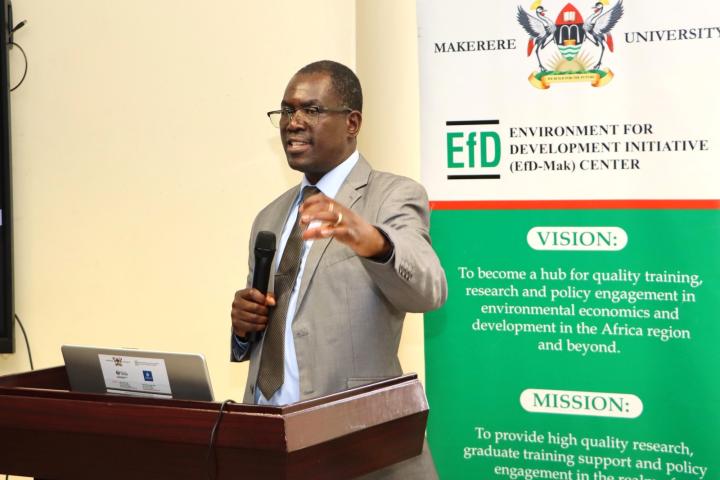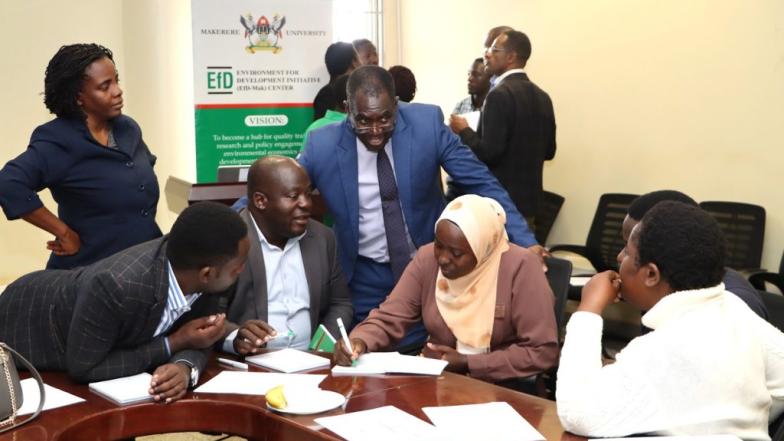EfD Uganda and EPRU Promote Inclusive Conservation

Professor Edwin Muchapondwa led the workshop in Uganda. Photo: EfD Uganda
A month ago, EfD Uganda called Ugandan policymakers to integrate communities into biodiversity conservation. Over a 2-day training workshop, from the 20th to 21st of August, EfD South Africa researcher Professor Edwin Muchapondwa led training which emphasized the importance of aligning conservation efforts and community involvement. The participants explored Uganda’s biodiversity challenges, such as habitat loss, agricultural expansion, poaching, and climate change. A key focus of the workshop was ecosystem valuation, the process of assigning monetary values to biodiversity to help guide policy decisions.

“When we reduce everything to a common metric, we can make objective, evidence-based decisions – especially when weighing development against conservation,” Prof. Muchapondwa said.
Training policymakers in ecosystem valuation
Attending policymakers practiced applying valuation techniques to real-world policy settings, from environmental impact assessments and Uganda’s own National Development Plan III. Improving understanding of how the evaluation techniques work improves their decision-making potential. However, despite strong conservation policies on paper, the implementation is not effective. Drawing off his own research into community conservation trade-offs, Prof. Muchapondwa noted, “The issue isn’t policy absence but execution. We must adapt successful community-based models from Southern Africa to Uganda’s context”.
EfD Uganda director Prof. Edward Bbaale praised Prof. Muchapondwa as a “pillar of the Environment for Development network”, and highlighted the importance of research which connects tourism, conservation, and economics.
The need to balance growth and biodiversity
The workshop also explored the tension between conservation and economic growth. Uganda has ambitious growth objectives, looking to expand its economy from USD50 billion to USD550 billion by 2040. This growth would primarily be achieved through agricultural expansion, which creates risks for biodiversity. It also threatens Uganda’s tourism sector, which depends heavily on biodiversity. To address this, the workshop equipped policymakers with the tools to defend policies through data and evidence.
The workshop closed with a renewed call for stronger partnership between academia, government, and communities, to ensure that development and conservation occur hand-in-hand.
Read the full report of the workshop here.
Find Prof. Muchapondwa’s presentation here.
Josh Gray